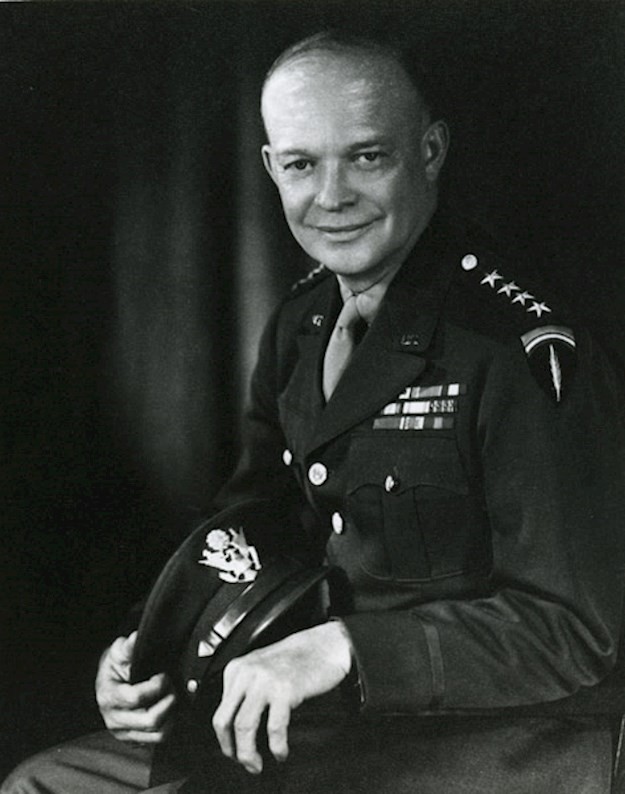Nothing in the curriculum of Dwight David Eisenhower predestined him to become the commander of one of the largest coalitions in history. Born into a modest Protestant family in Texas, he had led a military career without distinction after his graduation from the West Point officer’s school. He had never ordered troops into battle when he was appointed head of the Anglo-American forces in 1942. More than his military capabilities, it was his human qualities that led to this appointment. This man, colloquially nicknamed ‘Ike’, was a straight and affable character. He tried to give out his points of view rather than impose them: an essential quality in a war where each coalition ally weighed on strategic choices based on their national interests.
After conducting operations in the Mediterranean (landings in North Africa in November 1942, in Sicily in July 1943 and in Italy in September), Eisenhower received in January 1944 the mission to land in France and reach the heart of Germany in order to destroy it’s armies in conjunction with the other Allied forces. Beyond that, it was more generally to conduct a genuine ‘crusade’ against Nazi barbarism.
Despite the overwhelming forces at his disposal, the mission still seemed formidable, as the French coast seemed well defended by the German army. On 6 June, the landing was finally successful, a first step that leads to the liberation of Western Europe from the Nazi rule. After the war, Eisenhower commanded the NATO forces in 1951 and was twice elected president of the United States in 1952 and 1956.
